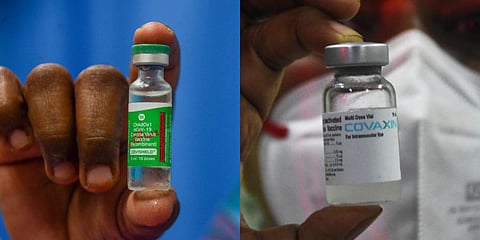

NEW DELHI: India has not imposed any ban on the export of coronavirus vaccines and it will continue to supply them to partner countries over the coming weeks and months in a phased manner, sources said on Thursday.
They said given India's manufacturing capacity and requirements of national vaccination programmes, there may be a need to calibrate the supply schedules from time-to-time.
The sources said all stakeholders will have to work together to adjust the schedules as required and the pandemic can only be dealt with collectively by such cooperation.
"We had stated that keeping in view the domestic requirements of the phased rollout, India will continue to supply COVID-19 vaccines to partner countries over the coming weeks and months in a phased manner," said a source.
"This position remains unchanged. We have not imposed any ban on exports of vaccines unlike many other countries," the source added.
India started supplying the vaccine doses to foreign countries on January 20.
The first countries to receive such vaccines were from the neighbourhood.
So far, India supplied more than 60 million doses of Made-in-India vaccines to over 75 countries including through COVAX which is a global initiative aimed at equitable access to COVID-19 vaccines.
The government has already announced that people who are 45 and older can be vaccinated from April 1.
It is ramping up the nationwide inoculation drive as the COVID-19 cases have increased in many states.
The UN-backed program to ship COVID-19 vaccines worldwide has announced supply delays for up to 90 million doses from an Indian manufacturer, in a major setback for the ambitious rollout aimed to help low- and middle-income countries fight the pandemic.
Gavi, the Vaccine Alliance, said Thursday that the delays come as India is facing a surge of coronavirus infections that will increase domestic demands on the Serum Institute of India, a pivotal vaccine maker behind the COVAX program.
"Delays in securing supplies of SII-produced COVID-19 vaccine doses are due to the increased demand for COVID-19 vaccines in India," Gavi said.
The move will affect up to 40 million doses of the Oxford University-AstraZeneca vaccines being manufactured by the Serum Institute that were to be delivered for COVAX this month, as well as 50 million expected next month.
Gavi said it has notified recipient countries.
The institute has been contracted to supply vaccines to 64 countries, and Gavi said the UN-backed program has "notified all affected economies of potential delays."
Gavi said the Serum institute has pledged that "alongside supplying India, it will prioritise the COVAX multilateral solution for equitable distribution."
Gavi, which runs COVAX jointly with the World Health Organisation and the Coalition for Epidemic Preparedness Innovations, has already distributed 31 million doses of the AstraZeneca vaccine -- 28 million from the Serum Institute and another 3 million from a South Korean contractor also producing the vaccine.
The program had been aiming to deliver some 237 million AstraZeneca vaccines through the end of May.
A Gavi spokesman said the delays were not expected to affect the goal of shipping some 2 billion doses worldwide through COVAX by the end of the year.
COVAX has so far shipped vaccines to some 50 countries and territories.
UN officials, governments, advocacy groups and others have pleaded with manufacturers to do more to speed up and widen production of COVID-19 vaccines and ensure fair distribution - insisting that the pandemic can only be defeated if everyone is safe from it.